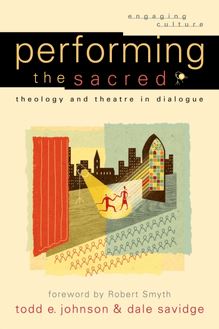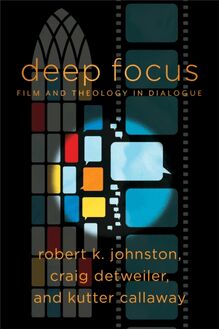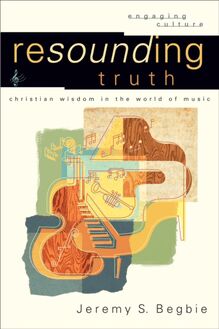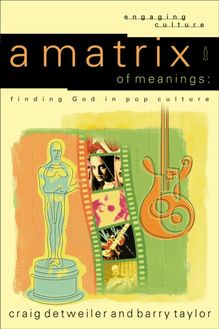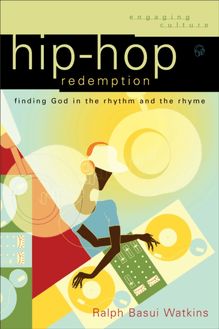-
 Univers
Univers
-
 Ebooks
Ebooks
-
 Livres audio
Livres audio
-
 Presse
Presse
-
 Podcasts
Podcasts
-
 BD
BD
-
 Documents
Documents
-
- Cours
- Révisions
- Ressources pédagogiques
- Sciences de l’éducation
- Manuels scolaires
- Langues
- Travaux de classe
- Annales de BEP
- Etudes supérieures
- Maternelle et primaire
- Fiches de lecture
- Orientation scolaire
- Méthodologie
- Corrigés de devoir
- Annales d’examens et concours
- Annales du bac
- Annales du brevet
- Rapports de stage
La lecture à portée de main
Vous pourrez modifier la taille du texte de cet ouvrage
Découvre YouScribe en t'inscrivant gratuitement
Je m'inscrisFor the Beauty of the Earth (Engaging Culture) , livre ebook
Découvre YouScribe en t'inscrivant gratuitement
Je m'inscrisEn savoir plus
Vous pourrez modifier la taille du texte de cet ouvrage
En savoir plus

Description
Sujets
Informations
| Publié par | Baker Publishing Group |
| Date de parution | 01 octobre 2001 |
| Nombre de lectures | 0 |
| EAN13 | 9781585583140 |
| Langue | English |
| Poids de l'ouvrage | 1 Mo |
Informations légales : prix de location à la page 0,0749€. Cette information est donnée uniquement à titre indicatif conformément à la législation en vigueur.
Extrait
Engaging Culture
W ILLIAM A. D YRNESS AND R OBERT K. J OHNSTON , SERIES EDITORS
The Engaging Culture series is designed to help Christians respond with theological discernment to our contemporary culture. Each volume explores particular cultural expressions, seeking to discover God’s presence in the world and to involve readers in sympathetic dialogue and active discipleship. These books encourage neither an uninformed rejection nor an uncritical embrace of culture, but active engagement informed by theological reflection.
© 2001, 2010 by Steven Bouma-Prediger
Published by Baker Academic a division of Baker Publishing Group P.O. Box 6287, Grand Rapids, MI 49516-6287 www.bakeracademic.com
Ebook edition created 2013
All rights reserved. No part of this publication may be reproduced, stored in a retrieval system, or transmitted in any form or by any means—for example, electronic, photocopy, recording—without the prior written permission of the publisher. The only exception is brief quotations in printed reviews.
ISBN 978-1-58558-314-0
Library of Congress Cataloging-in-Publication Data is on file at the Library of Congress, Washington, DC.
Unless otherwise indicated, all Scripture quotations are from the New Revised Standard Version of the Bible, copyright © 1989, by the Division of Christian Education of the National Council of the Churches of Christ in the United States of America. Used by permission. All rights reserved.
Scripture quotations labeled GNT are from the Good News Translation—Second Edition. Copyright © 1992 by American Bible Society. Used by permission.
Scripture quotations labeled KJV are from the King James Version of the Bible.
Scripture quotations labeled NIV are from the HOLY BIBLE, NEW INTERNATIONAL VERSION®. NIV®. Copyright © 1973, 1978, 1984 by Biblica, Inc.™ Used by permission of Zondervan. All rights reserved worldwide. www.zondervan.com
Scripture quotations labeled Phillips are from The New Testament in Modern English, revised edition—J. B. Phillips, translator. © J. B. Phillips 1958, 1960, 1972. Used by permission of Macmillan Publishing Co., Inc.
Scripture quotations labeled RSV are from the Revised Standard Version of the Bible, copyright 1952 [2nd edition, 1971] by the Division of Christian Education of the National Council of the Churches of Christ in the United States of America. Used by permission. All rights reserved.
Chapter 3 is adapted from Steven Bouma-Prediger, “Is Christianity Responsible for the Ecological Crisis?” Christian Scholar’s Review 25, no. 2 (1995). Copyright © 1995 by Christian Scholar’s Review . Reprinted by permission.
Chapter 6 is adapted from Steven Bouma-Prediger, “Creation Care and Character: The Nature and Necessity of the Ecological Virtues,” Perspectives on Science and Christian Faith 50, no. 1 (March 1998): 6–21. Used by permission.
Chapter 7 is adapted from Steven Bouma-Prediger, “Why Care for Creation: From Prudence to Piety,” Christian Scholar’s Review 27, no. 3 (1998). Copyright © 1998 by Christian Scholar’s Review . Reprinted by permission.
The lines of poetry on page 154 are from “Whatever Is Foreseen in Joy,” from Sabbaths by Wendell Berry. Reprinted by permission of North Point Press, a division of Farrar, Straus and Giroux, LLC.
The internet addresses, email addresses, and phone numbers in this book are accurate at the time of publication. They are provided as a resource. Baker Publishing Group does not endorse them or vouch for their content or permanence.
To my students in Belize, Chicago, Holland, Los Angeles, New Zealand, and Toronto for you have been my teachers
For the Beauty of the Earth
For the beauty of the earth,
For the beauty of the skies,
For the love which from our birth,
Over and around us lies,
Lord of all, to thee we raise,
This, our hymn of grateful praise.
For the wonder of each hour,
Of the day and of the night,
Hill and vale and tree and flower,
Sun and moon and stars of light,
Lord of all, to thee we raise,
This, our hymn of grateful praise.
For the joy of ear and eye,
For the heart’s and mind’s delight,
For the mystic harmony,
Linking sense to sound and sight,
Lord of all, to thee we raise,
This, our hymn of grateful praise.
For the joy of human love,
Brother, sister, parent, child,
Friends on earth and friends above,
For all gentle thoughts and mild,
Lord of all, to thee we raise,
This, our hymn of grateful praise.
For thy Church that evermore,
Lifteth holy hands above,
Off’ring up on ev’ry shore,
Her pure sacrifice of love,
Lord of all, to thee we raise,
This, our hymn of grateful praise.
Folliott S. Pierpoint
Cover
Series Page
Title Page
Copyright Page
Dedication
List of Illustrations
Acknowledgments
Introduction: Ecology and Theology in Dialogue
1. Where Are We? An Ecological Perception of Place
2. What’s Wrong with the World? The Groaning of Creation
3. Is Christianity to Blame? The Ecological Complaint against Christianity
4. What Is the Connection between Scripture and Ecology? Biblical Wisdom and Ecological Vision
5. How Should We Think of the Earth? A Theology and Ethic of Care for the Earth
6. What Kind of People Ought We Be? Earth-Care and Character
7. Why Worry about Galapagos Penguins and the Jack Pine? Arguments for Earth-Care
8. Where Is There Hope? Christian Faith at Home on Earth
Notes
Bibliography
Subject Index
Scripture Index
Back Cover
1 World Population Development
2 World Grain Production, 1950–2007
3 World Grain Production per Person, 1950–2007
4 Extinctions per Thousand Species per Millennium
5 Threatened Species, by Major Groups of Organism, 2006
6 Global Deforestation
7 Deforestation in Borneo
8 Global Trends in Water Withdrawals, 1900–2000
9 Global Desertification Vulnerability Map
10 Municipal Solid Waste Generation Rates, 1960–2006
11 Total and Per Capita Energy Consumption, 1995
12 World Energy Consumption
13 Hydrogen Ion Concentrations as pH, from Measurements Made at the Central Analytical Laboratory, 2006
14 Global Land-Ocean Temperature Anomaly
15 Variations in the Earth’s Surface Temperature for the Past One Thousand Years
16 Monthly Average Carbon Dioxide Concentration, May 2009 (Mauna Loa Observatory, Hawaii)
17 Extreme Weather Events, Summer 2004
I would like to gratefully acknowledge a number of people who assisted me with this book. Their comments, questions, and suggestions improved both the substance and the style of the text. First, my colleagues in the religion department at Hope College read and discussed various chapters of this new edition and the previous edition. So a heartfelt thanks to Barry Bandstra, Wayne Brouwer, Jenny Everts, Steve Hoogerwerf, Mark Husbands, Lynn Japinga, Phil Muñoa, Lyra Pitstick, Jeff Tyler, and Boyd Wilson. It is a privilege to work with such a talented group.
Many thanks also to Dean Bill Reynolds, Provost James Boelkins, and President James Bultman. Through their steady encouragement and timely financial support over the years, they have cultivated an ethos at Hope College in which excellence in teaching and in scholarship has flourished. I am one grateful beneficiary of their tireless efforts.
A number of friends and colleagues elsewhere read and commented on either this edition or the earlier one. Thanks to Ryan Atwell, Peter Bakken, Tom Boogaart, Kent Busman, and Brian Walsh. Some former Hope students have done research that contributed to this new edition, so a word of thanks to Justine Post, David Rye, and Allison Schneider. I also wish to thank Bill Dyrness and Rob Johnston, who as coeditors of the Engaging Culture series originally invited me to write this volume. It is a pleasure to be a part of this set of books.
At Baker Academic, Bob Hosack has been, as always, encouraging of this project, and Brian Bolger and his crew helped to polish my prose and make the text more readable. Thanks for your careful attention to detail.
As with previous writing projects, I owe an enormous debt of gratitude to my wife and children Celaine, Anna, Chara, and Sophia. A simple thank you is a woefully inadequate expression of appreciation for your patience and forbearance, care and concern.
As the dedication indicates, the book could not have been written (or rewritten) without my students, for this text has been forged and tested in the classroom. To all whom I have had the privilege of teaching, a hearty thank you. I have learned much from you. May we together continue to learn how best to care for each other and our home planet to God’s glory and for the beauty of the earth.
Any error about creation also leads to an error about God.
Thomas Aquinas [1]
“What does ecology have to do with theology?” Andrew asked, as I finished going over the course syllabus. Along with the standard fare of subjects usually found in a philosophical theology class arguments for God’s existence, the nature of religious experience, evidence for and against miracles, the problem of evil and human suffering I had included ecology as one of the topics to be covered in a summer school course I was teaching at a seminary in California. This student (and many others, I was soon to discover) wondered what such a topic had to do with this class. What do sandhill cranes and chinook salmon have to do with God? What possible relevance does ecology have for Christian theology?
Susan’s hand shot up in the air like fireworks on the Fourth of July in response to my question to the undergraduates in my Earth and Ethics course, “Who among you agrees with Wendell Berry’s assertion that ‘Our destruction of nature is not just bad stewardship, or stupid economics, or a betrayal of family responsibility; it is the most horrid blasphemy’?” [2] While Susan was persuaded that Berry was correct in his first three claims, she was certain he was wrong in his last. Our despoilation of creation was not, she strenuously argued, “the most horrid blasphemy.” A
-
 Univers
Univers
-
 Ebooks
Ebooks
-
 Livres audio
Livres audio
-
 Presse
Presse
-
 Podcasts
Podcasts
-
 BD
BD
-
 Documents
Documents
-
Jeunesse
-
Littérature
-
Ressources professionnelles
-
Santé et bien-être
-
Savoirs
-
Education
-
Loisirs et hobbies
-
Art, musique et cinéma
-
Actualité et débat de société
-
Jeunesse
-
Littérature
-
Ressources professionnelles
-
Santé et bien-être
-
Savoirs
-
Education
-
Loisirs et hobbies
-
Art, musique et cinéma
-
Actualité et débat de société
-
Actualités
-
Lifestyle
-
Presse jeunesse
-
Presse professionnelle
-
Pratique
-
Presse sportive
-
Presse internationale
-
Culture & Médias
-
Action et Aventures
-
Science-fiction et Fantasy
-
Société
-
Jeunesse
-
Littérature
-
Ressources professionnelles
-
Santé et bien-être
-
Savoirs
-
Education
-
Loisirs et hobbies
-
Art, musique et cinéma
-
Actualité et débat de société
- Cours
- Révisions
- Ressources pédagogiques
- Sciences de l’éducation
- Manuels scolaires
- Langues
- Travaux de classe
- Annales de BEP
- Etudes supérieures
- Maternelle et primaire
- Fiches de lecture
- Orientation scolaire
- Méthodologie
- Corrigés de devoir
- Annales d’examens et concours
- Annales du bac
- Annales du brevet
- Rapports de stage

